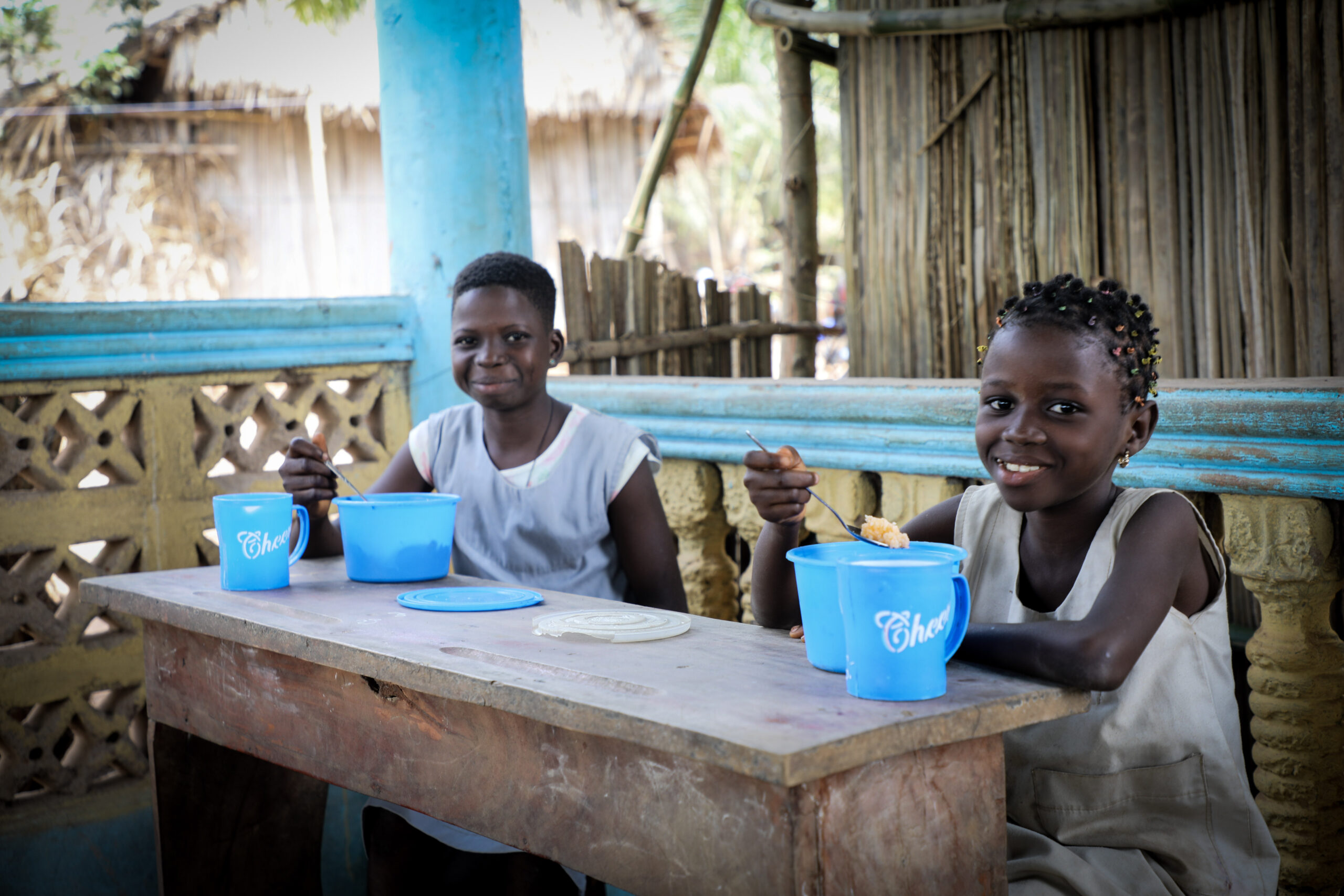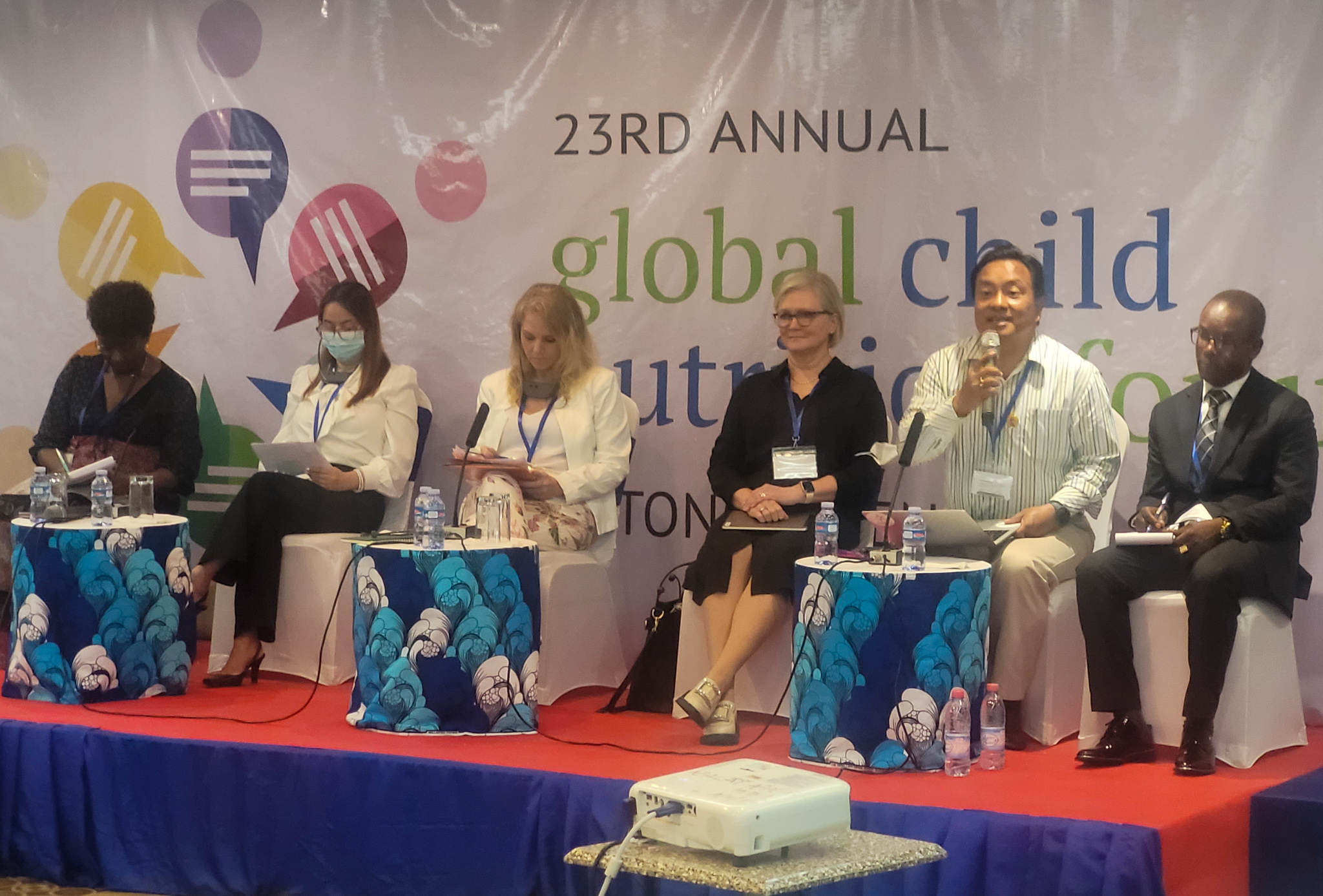
Experts from the World Food Programme (WFP) Centre of Excellence against Hunger Brazil, the Brazilian Cooperation Agency (ABC), and the National Fund for Education Development (FNDE) were in Benin to participate in the 23rd Global Child Nutrition Forum (GCNF), from October 23 to 28. The Forum is an annual conference that supports countries in developing and implementing sustainable school feeding programs. This year’s event brought together more than 25 participants from 44 countries, including government officials and multilateral institutions, NGOs, the private sector and academia. The World Food Programme was one of the hosts.
In the event’s final communiqué, participants recognized that school feeding programs have demonstrated resilience, even in the context of recent global crises, including Covid-19, conflict, climate impacts, rising food prices, and disruption in supply chains. “Many countries were able to increase the number of children served by school feeding programs in 2022 compared to 2019, and donors have increased investments while maintaining commitment to these programs”, says the document.
As part of the technical program, the WFP Center of Excellence organized a workshop to promote a discussion on local family farming procurement initiatives for school feeding. Representatives from Brazil, Angola, Mozambique, Cameroon, Côte d’Ivoire, Senegal, and Togo were invited. During the session, participants talked about their learnings in this implementation modality, which is in different stages of expansion in the countries.
“Brazil, which already has a school feeding law that requires the purchase of at least 30% of food from family farming, reported that it took almost ten years to reach the goal itself, after much effort in intersectoral coordination, training and investment” said Vinicius Limongi, from the Center of Excellence’s Programs team. “Togo also reported on their recent exercise using a systems approach for educational outcomes, known as SABER, and how it was useful in identifying action points towards integrating local agriculture and their school feeding program,” he added.

The representatives from Brazil also participated in the plenary session of experience sharing, along with representatives from Malawi, Guatemala, Finland, Bhutan, and Burundi.
Solange Castro, Coordinator of the National School Meals Program in Brazil (PNAE), highlighted the decentralization of the program, describing the amount of meals distributed daily in the country and the nutritional principles that the program follows. She also described the innovations of the program, discussed in other activities of the Forum, such as the participation of family farming in feeding the students, and the right and social protection perspective of PNAE.
When asked about what she thinks today about the beginning of the implementation of the program, she said: “I would like to keep in mind the importance of school feeding being a State policy, the importance of valuing the culture and eating habits of the students, and the importance of decentralization, of giving autonomy to the states and other local actors in implementing the program.
In addition to these activities, the country delegations also participated in a field visit to observe the operation of the school feeding program in Benin.
About o GCNF
Since 1997, the annual Global Child Nutrition Forum has united leaders from countries around the world for up to five days of intensive training, technical assistance and planning, all directed toward establishing country-operated sustainable school feeding programs. By sharing their insights, experiences, and challenges, an informal worldwide alliance of leaders dedicated to advancing school feeding has evolved. As a result, the Forum has become a global catalyst for school feeding development. The Centre of Excellence has taken parti in every GCNF edition since 2013.
Organized by the Global Child Nutrition Foundation (GCNF), in partnership with varying host countries and organizations, the Forum brings together those interested in school feeding and child nutrition programs, including representatives of government offices, businesses, international organizations, NGOs, academic institutions, and many others. The Forum encourages open dialogue and the sharing of experiences, best practices, lessons learned, challenges and options to sustainably support nutritious home-grown school meal programs.




